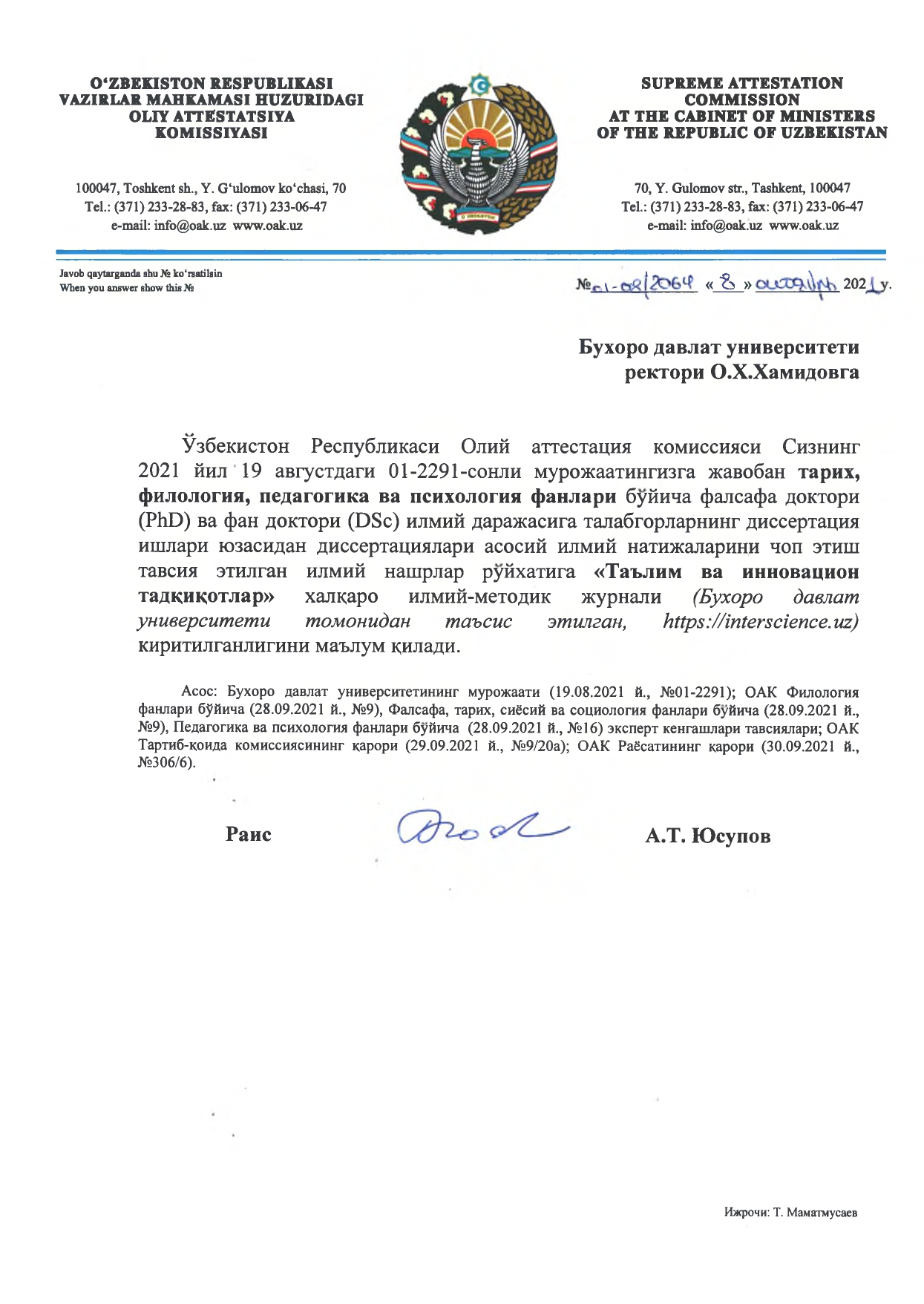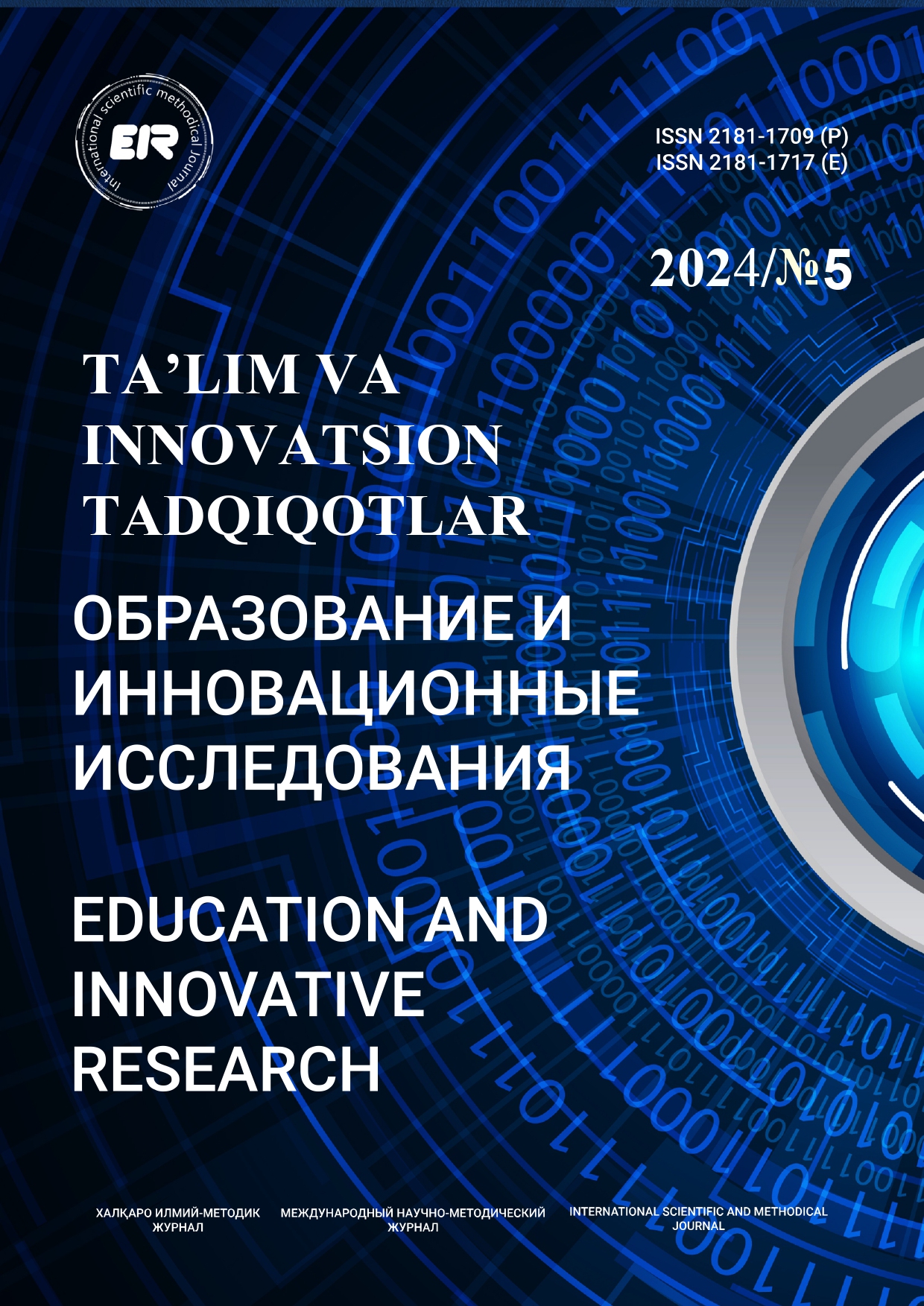O’ZIGA ISHONGAN TALABALAR TIL O’RGANISHDA MUVAFFAQIYATLIMI?
Abdullayeva Gulnora Gaybulloyevna Buxoro davlat universiteti, Ingliz tilshunosligi kafedrasi o’qituvchisi
Ключевые слова:
o’z-o’zini hurmat qilish, malakalilik, oshkor qilish, avtonom, tekshirish, motivatsiya, muvaffaqiyat, egallash, real umidlar, yutuqlarni tan olish, konstruktiv fikr-mulohazalar, o’quvchilarning xatosini haddan tashqari to’g’rilashАннотация
Ushbu maqolada o’quvchilarning til o’rganishdagi muvaffaqiyatiga o’ziga bo’lgan ishonchning ta’sirini har tomonlama ko’rib chiqiladi. Mavjud tadqiqot natijalarini sintez qilish orqali tadqiqot o’ziga bo’lgan ishonchning tilni bilish, motivatsiya va muvaffaqiyatga ta’sirini o’rganadi. Shuningdek, o’z-o’ziga ishonch va tilni bilish, xususan, nutq qobiliyatlari o’rtasidagi bog’liqlik, ishonch darajasi va til o’rganish samaradorligidagi jinsga xos farqlar ko’rib chiqilib, o’ziga bo’lgan ishonchning turli xil o’quvchilar guruhlariga ta’siri haqida tushunchalar berilgan. Til o‘rganishda o‘quvchilarning o‘ziga bo‘lgan ishonchini shakllantirishga qaratilgan pedagogik yondashuvlar va samarali tadbirlar muhokama qilinib, asosiy e’tibor qulay va inklyuziv ta’lim muhitini yaratishga qaratilgan.
Библиографические ссылки
Ahrorovna, N. N. (2023). Analyses of Anthroponyms in the Novel “The Godfather”. American Journal of Language, Literacy and Learning in STEM Education (2993-2769), 1(10), 523-526.
Abdullayeva Gulnora Gaybulloyevna. (2022). MEMORY AS AN IMPORTANT FACTOR IN LEARNING VOCABULARY. Open Access Repository, 8(1), 81–86. https://doi.org/10.17605/OSF.IO/ A3S7F
Abdullayeva, G. (2022). LEARNERS’PSYCHOLOGY AS ONE OF THE MAIN ISSUES INFLUENCING LANGUAGE LEARNING PROCESS. ЦЕНТР НАУЧНЫХ ПУБЛИКАЦИЙ (buxdu. uz), 11(11). http://journal.buxdu.uz/index.php/journals_buxdu/article/download/6321/4013
Abdullayeva, G. G. (2023). LANGUAGE LEARNING AND PSYCHOLOGY. Finland International Scientific Journal of Education, Social Science & Humanities, 11(2), 555-560. http:// farspublishers.org/index.php/ijessh/article/view/520
Abdullayeva, G. G. . (2023). Ways of Motivating Young Learners in EFL Classroom. Miasto Przyszłości, 32, 122–124. http://miastoprzyszlosci.com.pl/index.php/mp/article/view/1109
Dewaele, J. M. (2010). Emotions in multiple languages. Palgrave Macmillan.
Dewaele, J. M., & MacIntyre, P. D. (2014). The two faces of Janus? Anxiety and enjoyment in the foreign language classroom. Studies in Second Language Learning and Teaching, 4(2), 237-274.
Dornyei, Z. (2005). The psychology of the language learner: Individual differences in second language acquisition. Mahwah, NJ: Lawrence Erlbaum Associates.
Ellis, Rod. Second Language Acquisition. Oxford: OUP, 1994- 832p
MacIntyre, P. D., & Gardner, R. (1994). The subtle effects of language anxiety on cognitive processing in the second language. Language Learning, 44(2), 283-305.
MacIntyre, P. D., Noels, K. A., & Clement, R. (1997). Biases in self-ratings of second language proficiency: The role of language anxiety. Language Learning, 47(2), 265-287.
Matsuda, S., & Gobel, P. (2001). Anxiety and predictors of performance in the foreign language classroom. System, 29(2), 163-182.
Gaybulloyevna, G. A. (2022, January). Factors affecting language learning process. In Integration Conference on Integration of Pragmalinguistics, Functional Translation Studies and Language Teaching Processes (pp. 277-279).
Ahrorovna, N. N. (2023, May). Antroponimlarning lingvokulturologik tahlili. In Integration Conference on Integration of Pragmalinguistics, Functional Translation Studies and Language Teaching Processes (pp. 69-71).





